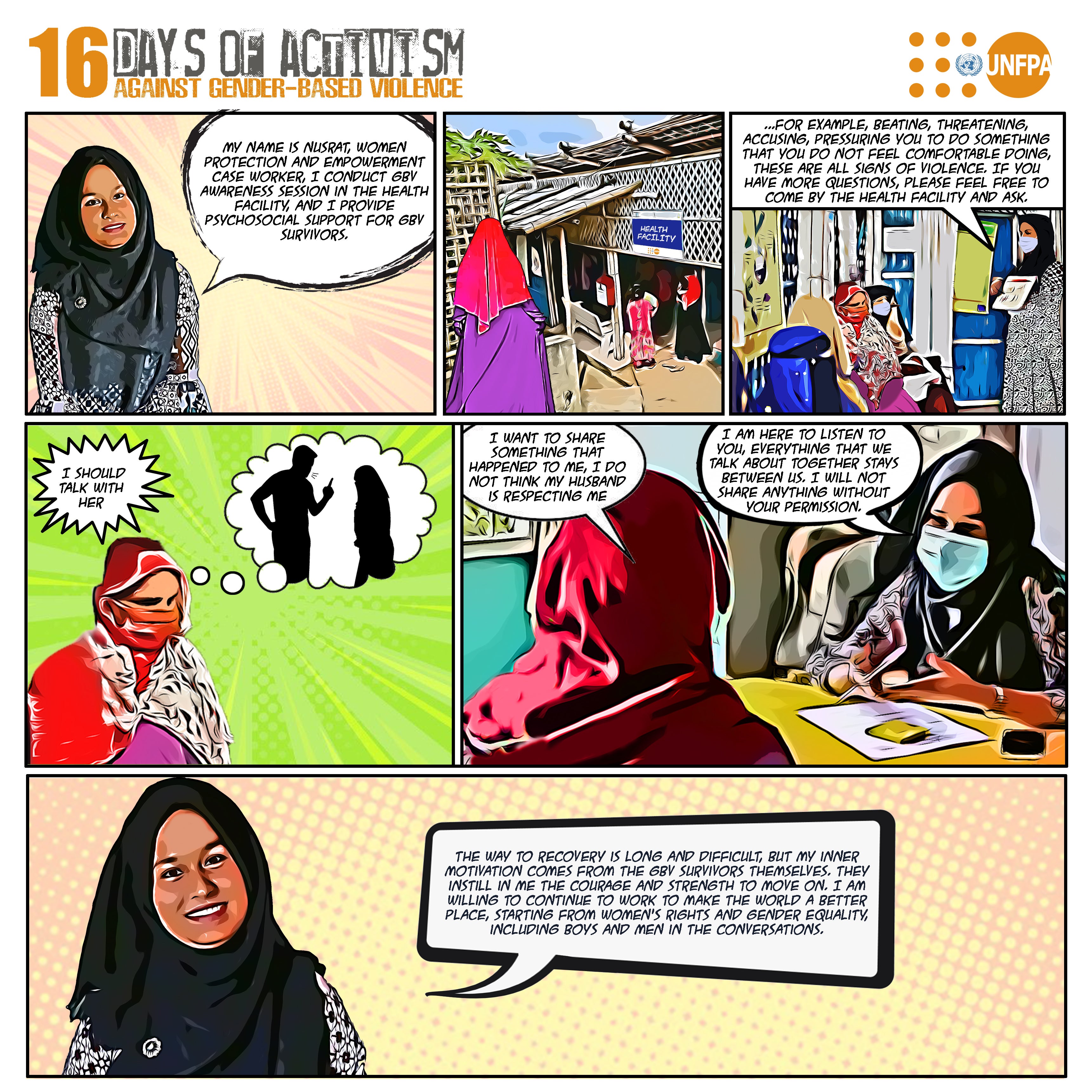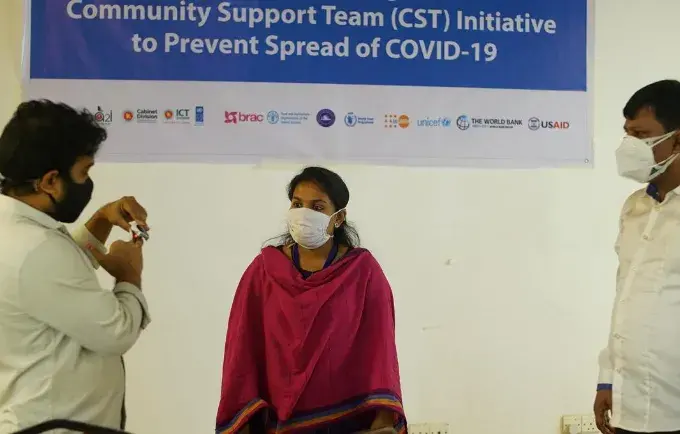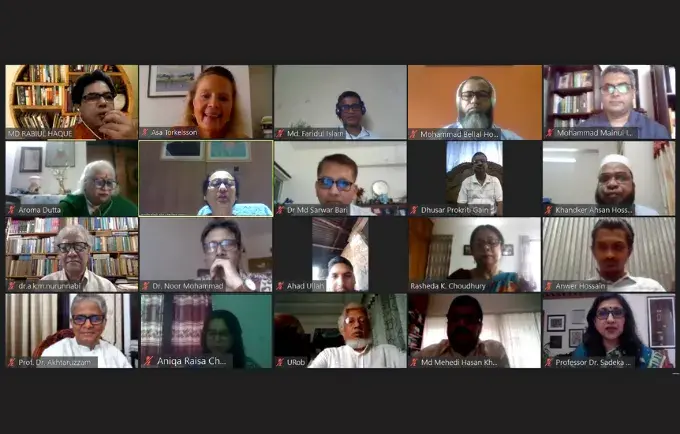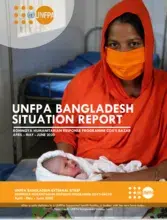“I provide psychosocial support for survivors of gender-based violence”, says Nusrat, a case worker for Women’s Protection and Empowerment in one of the UNFPA-supported health facilities in the Rohingya camps in Cox’s Bazar, Bangladesh.
Throughout the ongoing COVID-19 pandemic, these maternal health facilities continue to provide life-saving services and information to survivors of gender-based violence.
Ensuring access to such services is critical at the moment, as mobility restrictions imposed to control the pandemic put women and girls at a heightened risk of gender-based violence, especially domestic abuse.
Findings from the recent Joint-Multi Sector Needs Assesment also show that sexual harassment remains prevalent among both the Rohingya and host communities. According to the assessment, women in both communities fear sexual violence during mundane, daily activities such as using the bathroom at night.
Nusrat is working to ensure that Rohingya women are able to use the services available to them. Her team of volunteers from local NGOs make door-to-door visits to inform the community of the available services through the health facilities and raise awareness on the different forms of violence, whether it be physical, sexual, emotional or economic violence.
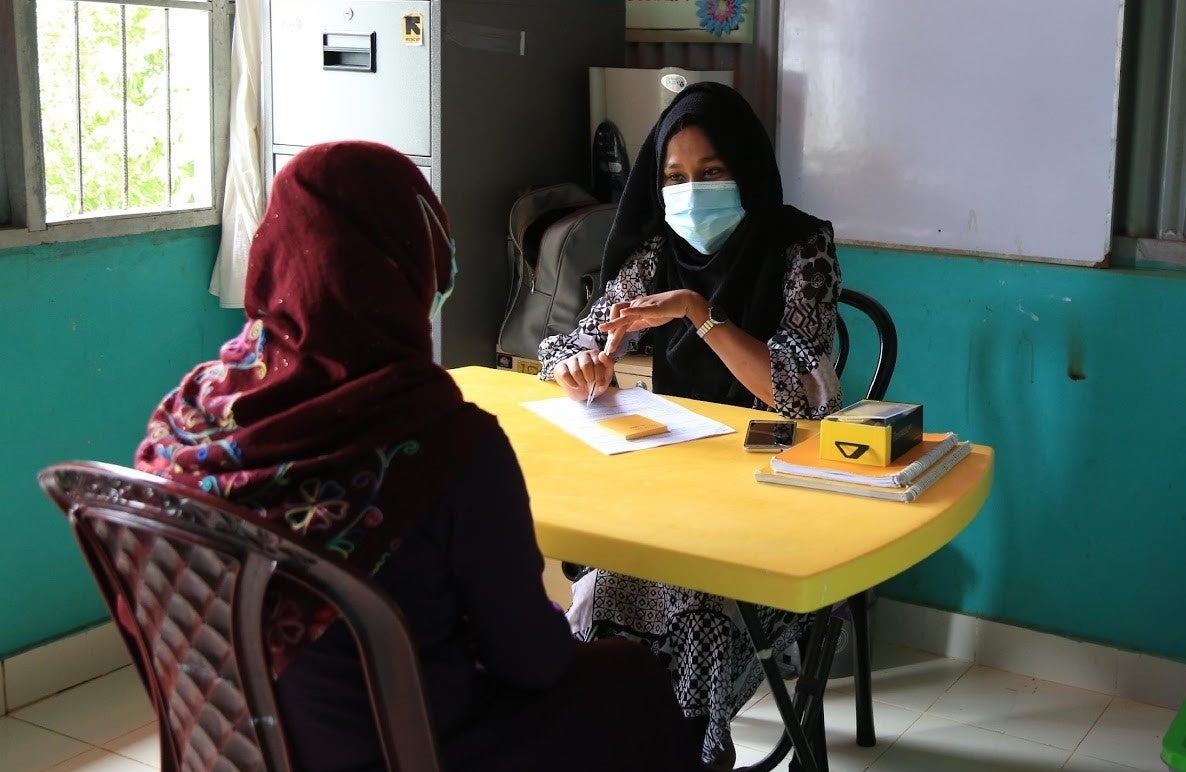
“In more complex cases, I refer the survivors for legal assistance, security services or child protection,” Nusrat says, as she describes her daily work.
She says that asking women and girls to come to the facilities is not an easy task. “When the community trusts the volunteers and case workers and they truly feel that the health facility is a safe and confidential space to talk in, then they would visit us,” she explains.
“When COVID-19 began, I managed cases over the phone, but it was challenging. I have realized that face-to-face interactions give women more confidence to come and talk to us”.
The health facilities have ensured that COVID-19 precautions are in place, encouraging women to continue their visits for access to professional services.
Despite the occasional challenges, Nusrat feels more motivated than ever to continue her life-saving work for the empowerment of Rohingya women.
“The inspiration comes from the survivors themselves who instil in me the courage and strength to move on. On my darkest days, I see them having so little yet still finding the inner strength to look for solutions. Thanks to them, I feel motivated, energized and willing to continue my work to make the world a better place with women’s rights and gender equality as its foundation,” she says with confidence and a bright smile.
